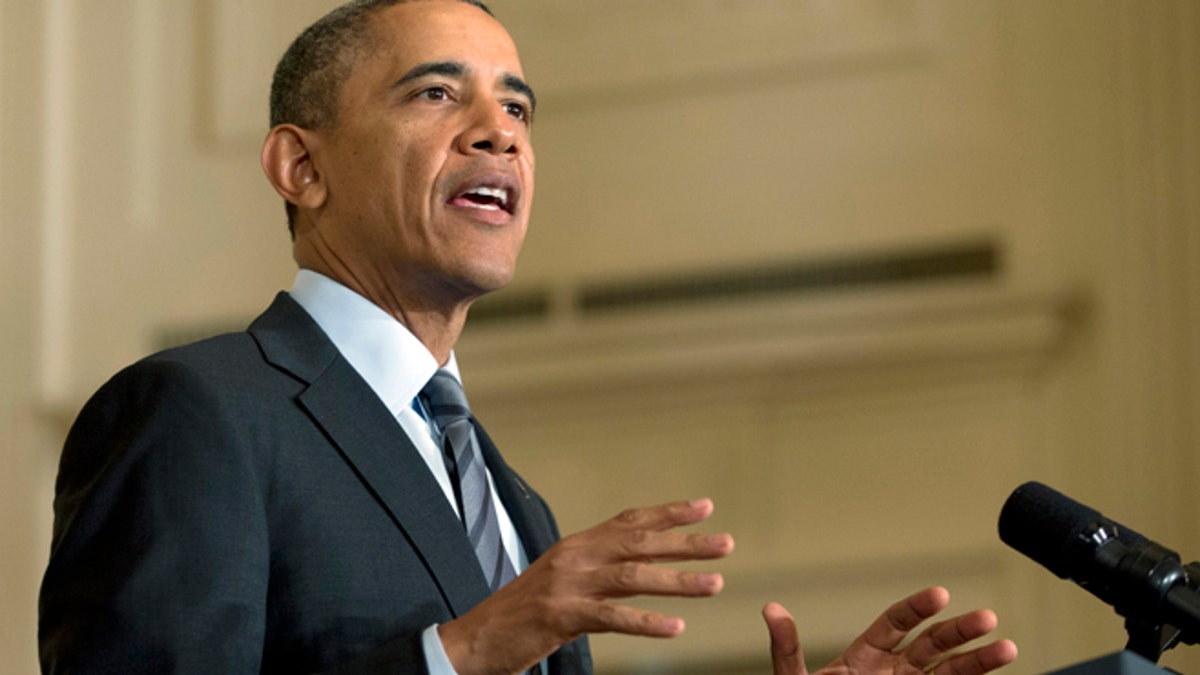
President Barack Obama. (AP)
Attorney General Eric Holder announced this week that the Obama administration will welcome applications for clemency from non-violent drug offenders – users or, perhaps, distributors – who have served at least 10 years in jail and who were convicted under laws that have since changed.
The applicants being sought were sentenced under federal guidelines organized like a recipe book. They dictated that those found guilty in drug cases must be sentenced to a minimum number of years in federal prison, calculated according to the weight of the particular drug in their possession when they were arrested.
Thousands of applicants for clemency may qualify, and some experts say the number of people ultimately granted clemency may end up in the hundreds.
In my opinion, this Obama clemency initiative is very wise and should be just the beginning of re-examining the horrors visited upon many thousands of defendants and their families when rigid, draconian sentences were handed out to them like candy – often without much, if any, regard for mitigating circumstances like drug dependency or severe psychiatric symptoms.
Let me be clear: For years, our federal courts acted without empathy for drug defendants and ruined their lives, when their lives could have been salvaged. And this was a terrible sin.
As an expert witness who testified in federal drug cases, I saw a 19-year-old sentenced to 15 years for possessing enough powdered cocaine to sell to others. He had been lured to accept and pass along the supply by a “friend” who had been arrested in a drug case, was offered a reduced sentence to turn in other dealers and knew that the 19-year-old had once been convicted of selling steroids to other muscle heads at a local gym.
Fifteen years, at age 19, is nearly a life sentence, because rebuilding one’s existence at 34-years-old after being caged up for about half that time calls not just for strength of character (with examples of it in short supply in federal prison), but for a miracle.
That man’s life was shattered because the judge weighed the grams of cocaine in his possession and didn’t weigh the fact that he had been viciously abused for years as a child, that he had been knocked unconscious a dozen times during beatings, that he was truly repentant, that he was willing to be drug tested for decades, if necessary, or that he was willing to wear a monitoring bracelet, be treated psychiatrically and be placed on house arrest for as long as necessary.
When I asked the judge privately why she wouldn’t give a seemingly deserving person a chance to remake himself, she said, “I have no flexibility. I do what the guidelines tell me to do. It is not something in my discretion.”
What? What kind of justice is possible when the individuals in charge of administering it have no authority to dispense it? Who qualifies for leniency when the judges who might be inclined toward it are handcuffed? Why should justice be severed from compassion and an effort to rehabilitate in a nation that once believed in reclaiming lost souls and in rebirth? And what height of government hypocrisy must prevail to pass drug laws that are brutally unsparing when so many of our elected officials may have used illicit drugs—including cocaine—themselves?
If you disagree with that, by the way, ask yourself how many members of Congress would agree to go under oath and testify to never having used marijuana, cocaine or opiate pain relievers without a prescription. I would bet less than half. What’s more, I believe if you were to drug test members of Congress randomly today and insist on resignations from those testing positive, several would be packing their bags by noon.
None of this means drugs are good. They are a plague. Using them is self-destructive, and selling them contributes to the destruction of others. But no attempt to control an evil ought be evil itself. And our federal drug laws were – and, in some measure, still are – exactly that.
President Obama granting clemency to hundreds or thousands of drug offenders convicted of no violent crime will be a beginning toward rebalancing the scales of justice – but just a beginning
